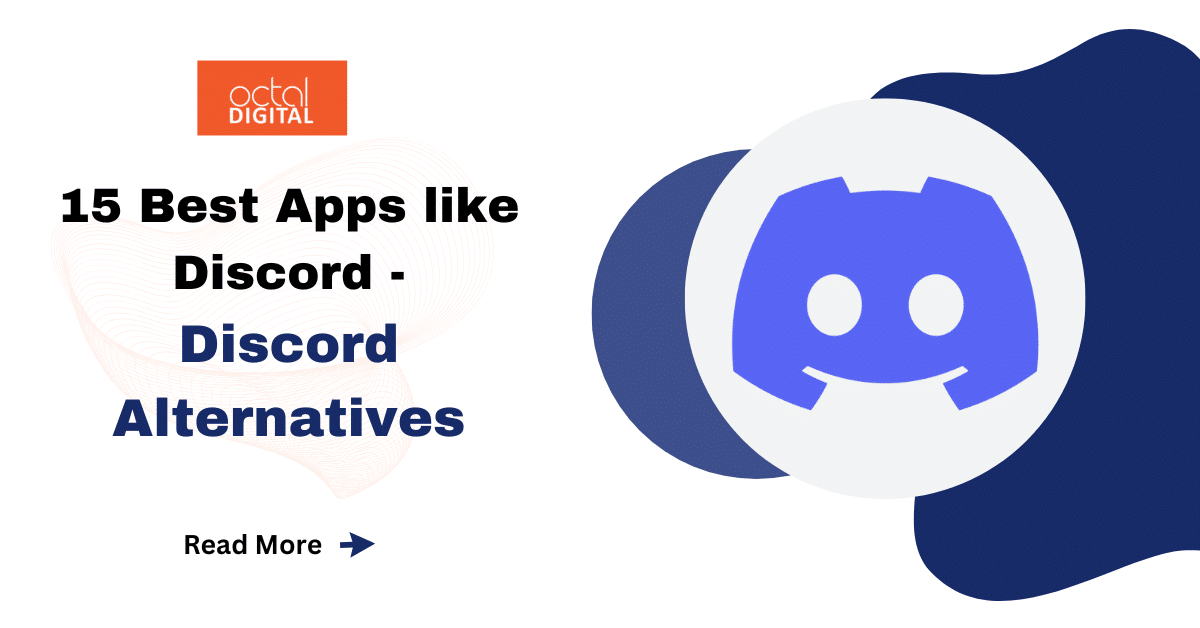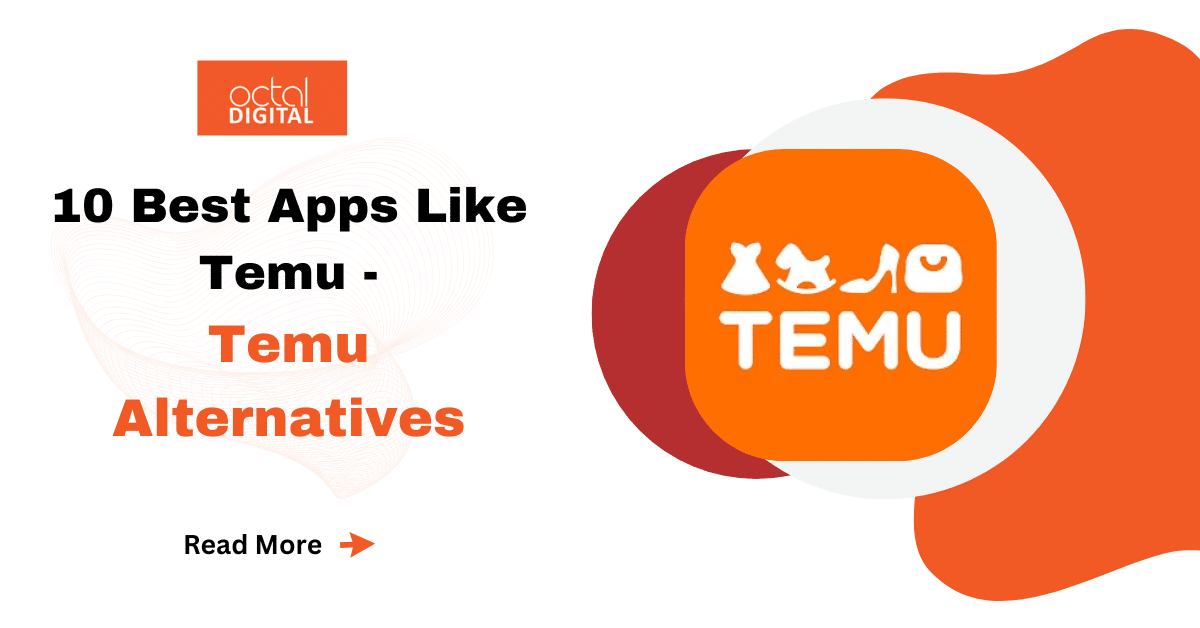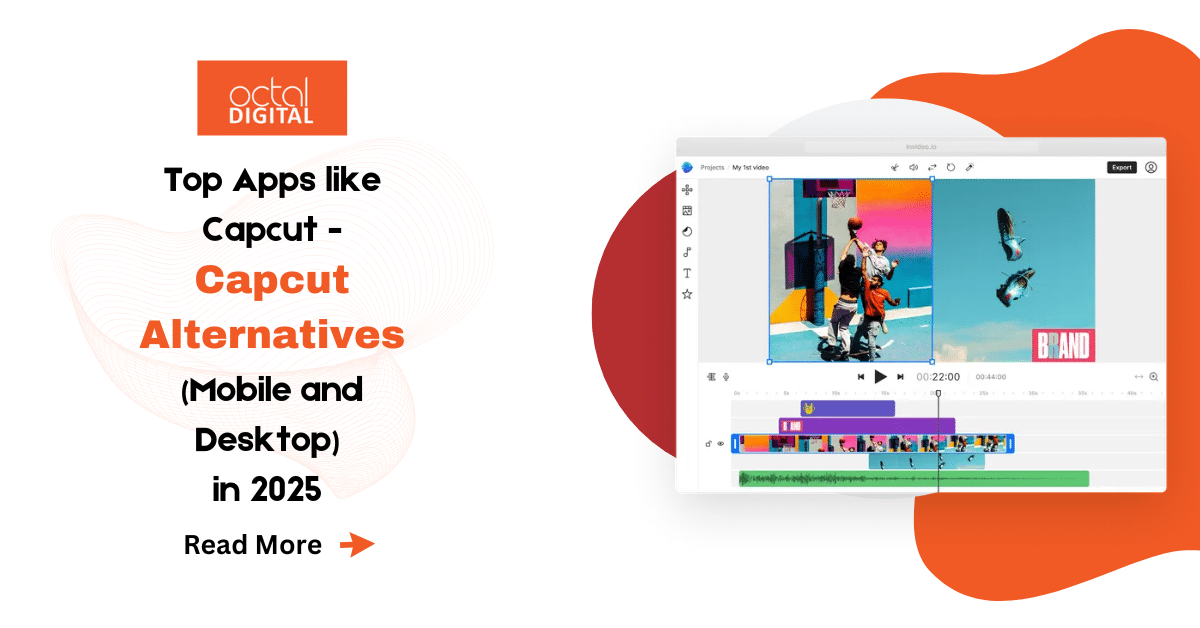Defining your presence on the internet requires a unique UI and functional app, that stands out among your competitors. A well-thought-crafted mobile app serves businesses with an organic flow of traffic and increased customer conversions.
With plenty of new and experienced mobile app developers in Houston on the internet web, it gets hard to find the right web app development app for your requirements.
This article speaks to startups and business leaders to help them shortlist and find the perfect experienced team of a mobile app development company in Houston for them.
Let’s get right into it!
Table of Contents
ToggleStep 1: Identify your mobile app requirements

The first step is to understand your mobile app development requirements. Start by clearly defining your app requirements. This includes the app features, and your target audience (i.e. exposure to technology).
Decide what platforms you want your app to launch on—iOS, Android, or both hybrid. Ideally, we advise choosing hybrid mobile app development services to ensure availability on both platforms.
To further ease the requirements gathering for our readers, we have compiled a quick question-based key factors table to collect necessary app information:
| Category | Questions / Requirements | Details / Notes |
| 1. Business Objectives | What is the main purpose of the app? | Define the core goals (e.g., fitness tracking, e-commerce, social networking). |
| Who is the target audience and your business goals? | Age group, location, preferences, and demographics. | |
| What business model will be used? | Free, subscription, in-app purchases, ads, enterprise licensing. | |
| Are there competitors? | List key competitors and their features. | |
| 2. Features & Functionality | What are the must-have features in your mobile application? | E.g., login, push notifications, AI recommendations, chat support. |
| Any unique or differentiating features? | AI-powered insights, multi-modal interaction, gamification, AR/VR. | |
| Will the app require offline functionality? | Data caching, local storage. | |
| Does the app need third-party integrations? | Payment gateways, social logins, APIs. | |
| 3. UI/UX Requirements | What is the desired design style? | Minimalist, dark mode, colorful, corporate. |
| Any accessibility requirements? | Voice support, screen readers, color contrast. | |
| Will there be multi-language support? | List required languages. | |
| 4. Technical Requirements | What platforms will the app support? | iOS, Android, Web (PWA), Hybrid (Flutter/React Native). |
| Will the app be native, hybrid, or web-based? | Define the approach based on requirements (ideally Cross-platform Development ) | |
| What are the backend requirements? | Cloud-based, on-premise, serverless, database choice (SQL/NoSQL). | |
| What security measures are required? | Encryption, 2FA, GDPR compliance. | |
| 5. AI & Smart Features | Will the app have AI-driven functionalities? | Chatbots, NLU, predictive analytics, personalized recommendations. |
| Will the app use multi-modal AI? | Text + voice + image interactions. | |
| Is real-time processing needed? | Live chat, voice commands, data analytics. | |
| 6. Performance & Scalability | What is the expected user load? | Define expected DAUs (Daily Active Users). |
| Will the app need cloud scalability? | AWS, Azure, Google Cloud. | |
| Any special performance requirements? | Low latency, offline mode, real-time sync. | |
| 7. Compliance & Legal | Does the app require data protection compliance? | GDPR, CCPA, HIPAA (if healthcare). |
| Will the app store personal/sensitive data? | Define security measures. | |
| Are there licensing requirements? | Open-source libraries, paid APIs. | |
| 8. Monetization Strategy | Will the app include in-app purchases? | Define pricing tiers. |
| Will the app include ads? | Ad networks, ad placement. | |
| Will there be a subscription model? | Free trial, freemium, premium. | |
| 9. Development & Testing | What is the development timeline? | Define phases: MVP, beta, final release. |
| What testing strategies will be used? | Manual, automation, device testing, user acceptance testing (UAT). | |
| Will the app support regular updates? | Roadmap for feature releases. | |
| 10. Deployment & Maintenance | What is the deployment strategy? | Phased rollout, beta testing, global launch. |
| Will there be post-launch support? | Bug fixes, performance updates. | |
| What analytics tools will be used? | Google Analytics, Firebase, Mixpanel. |
This thorough preparation will enable you to better assess whether a development company can meet your long-term goals for the app.
Step 2: Research Potential App Development Companies
Now that you have a good idea of what and how exactly you need your app to function, it’s time to start shortlisting mobile app development companies in Houston. Here’s how you do it:
Google search with relevant keywords, to find the best results. Some keywords you can search are:
- Mobile app development company Houston
- Top mobile app developers in Houston
- Best app development firms in Houston
- Custom mobile app development Houston
- iOS and Android app developers Houston
- Healthcare mobile app development Houston
- E-commerce app development company Houston
- AI-powered app development Houston
- Fintech app developers Houston
- Real estate app development company Houston
- Flutter app development Houston
- React Native app developers Houston
- AI-driven mobile apps Houston
- Cross-platform app development Houston
- Best mobile app developers in Houston Clutch
- Top-rated app development companies in Houston GoodFirms
- Houston professional app developers Yelp
- Professional developers Houston
- Best software development firms Houston LinkedIn
Now, start researching potential development companies that are coming in top searches. Check their online reviews, testimonials, and case studies and gather insights into their strengths and weaknesses. One company could be highly proficient in UI/UX, while another could be more oriented in compliance handling and functionality-centric.
You can also try to search your competitors that have successfully launched apps similar to yours and try to identify the mobile app development company they hired for them. This will also help you understand niche-specific details about what type of company you should consider.
Now investigate how each mobile app development company in Houston structures their pricing model, whether it be a fixed fee or hourly rate, to understand which approach aligns best with your project requirements.
Also, do anticipate some additional expenses such as post-launch support and updates, and set aside a financial buffer to ensure your app remains functional and up-to-date after launch.
Choose a mobile development company that demonstrates dedication and a focused approach to app development.
Step 3: Evaluate companies based on their portfolio and case studies

To find the right mobile app development company in Houston, reviewing a company’s project portfolio provides a clear picture of their experience. It helps in understanding the quality of their work, and timelines, through process, tech stack hold, best practices, and much more, particularly for projects similar in complexity and functionality to your proposed app.
Make sure that the solutions proposed by the mobile app development company are relevant to your needs.
Also, checking client reviews after successful completion also provides a clear picture of how cooperative and transparent they are as a mobile app development partner. A mobile app development company in Houston needs to be compliance-oriented and targeted throughout the development phase.
Check out Octal Digital’s case studies and portfolio, to explore our range of services!
An updated portfolio ( or customer engagement ) with positive client testimonials works as first-hand evidence of a company’s track record. The more successfully completed mobile app development projects, the more confident you can be in their capabilities.
Similarly, a strong portfolio should showcase a variety of successful apps, highlighting the company’s ability to develop innovative solutions and handle different challenges. Focus on the app’s design, user interface (UI), performance, and technical complexity achieved.
When evaluating portfolios, look for projects that demonstrate an understanding of the unique challenges of your industry.
Step 4: Review client testimonials and feedback
This is the most crucial step while finalizing a mobile app development company for your app idea in a competitive market. Client testimonials provide firsthand accounts of previous clients’ experiences. They offer hands-on of the company’s development practices and effectiveness at customer service levels.
Online reviews are an additional source of user feedback that helps gauge a company’s reputation and may reveal potential red flags. A pro tip will be to research the authenticity of reviews.
Check out reviews from multiple sources such as LinkedIn comments, Medium, Reddit, Facebook, Twitter, Clutch Reviews, etc. Also, check if the reviewer is authentic or not. If they are in business, you can ask them for their experience with the mobile app development company in Houston too. This will get you a good lead in finding the right development agency for you.
Examining a development company’s portfolio, including client testimonials and reviews, allows you to assess their ability to meet project expectations and objectives.
Positive feedback from previous clients serves as a clear indicator of a company’s reliability and quality of work. However, you have to pay special attention to negative reviews too.
Engaging directly with previous clients can provide valuable knowledge regarding how the outsourcing team communicates, collaborates, and resolves challenges.
When talking about testimonials, Octal Digital (a top reputed mobile app development company in Houston), has a proven 100% record of successful mobile app development projects in the past 15+ years. We promote complete transparency and an organized development process with tools such as Jira. Check our testimonials from our past mobile app development clients.
Step 5: Assess expertise in your specific industry
While researching the mobile app development company in Houston, shortlist companies that are familiar with your sector and can deliver customized solutions that address specific challenges and needs. Industry expertise with the right technical skills is vital for mobile app development.
Their knowledge of domain experience such as single codebase for high-quality apps will help them quickly understand business challenges and develop relevant technical solutions, especially catering to industry compliances such as HIPPA, GDPR, etc.
Overall if you work with a mobile app development in Houston that has already developed mobile apps similar to your app’s functionality, it will significantly reduce the time and effort needed during the development of the project.
Step 6: Analyze the company’s communication skills
A good custom mobile app development company along with proven technical skills should be quick in communications, along with transparency, and accountability. Establishing clear expectations from the start and setting regular meeting times for updates reduces development conflicts and time wastages.
Early clarification of communication preferences, including whether you prefer email, phone calls, or project management software, helps streamline interactions with the development team. Choose whatever suits you well.
Discuss your communication plan beforehand be it weekly / bi-weekly, monthly, or, quarterly.
Regular progress reports provided by the company ensure transparency and allow for open discussions. The company should make informed decisions with effective communication practices.
Once they agree, move on to the next step.
Step 7: Investigate development methodologies used by the company
A well-defined and systematic approach to app development can help ensure that projects stay on track, meet deadlines, and deliver desired results. This is achieved with experienced project managers.
Companies that follow industry-standard processes, such as Agile development or Scrum methodologies, emphasize collaboration, iterative development, and frequent feedback.
Choose a company with a dedicated mobile app development team, committing to proposing relevant solutions that align with your project needs.
Here are some methodologies we follow at our mobile app development agency in Hoston to ensure a seamless mobile app development experience:
| Methodology | Description |
| Waterfall | A linear, sequential approach where development follows strict phases (Requirements → Design → Development → Testing → Deployment). Best for well-defined projects with minimal changes. |
| Agile development | An iterative approach that focuses on flexibility, collaboration, and continuous improvements. Work is divided into small sprints for faster development. Ideal for evolving requirements. |
| Scrum | A subset of Agile methodology with structured sprints (1-4 weeks) and daily stand-ups. Ensures rapid iteration, regular feedback, and adaptability to changes. |
| Kanban | A visual workflow management system that emphasizes continuous delivery and minimizing bottlenecks. Tasks move through stages (To-Do → In Progress → Done). |
| Lean | Focuses on efficiency by eliminating waste, optimizing resources, and delivering high-value features quickly. |
| DevOps | A combination of development and operations, ensuring faster deployments, continuous integration (CI/CD), and better collaboration between teams. |
| RAD (Rapid Application Development) | Prioritizes quick prototyping, frequent feedback, and iterative development. Suitable for projects with tight deadlines. |
| Spiral | A risk-driven methodology that combines iterative development with risk assessment at every phase. Best for high-risk projects. |
| Extreme Programming (XP) | A highly disciplined Agile method with continuous testing, frequent releases, and customer involvement. Focuses on high-quality code. |
Step 8: Understand post-launch support, maintenance cost, and offerings
Check if the mobile app development company in Hoston that you are hiring, offers post-deployment support or not. Post-launch support is essential to ensure that your app remains functional and up-to-date. The support usually includes fixing new bugs, any performance issues, and compatibility with new operating system versions.
Regular maintenance updates and post-release support for bug fixes by a team of developers make your app up-time 100%, without leading to any disruptions in business continuity.
We at Octal Digital, a leading mobile app development company in Hoston, offer advanced features and free post-deployment support for up to 6 months of time period. Along with this, we also deliver documentation and user guides for the operators allowing easy transfer of knowledge. Our mobile app development support also includes troubleshooting and contentious bug fixes, within a specified time period of 7 days.
Step 9: Discuss pricing models with potential partners
Now based on your initial requirements, choose a pricing model that allows you to select the best fit for your project based on budget, timeline, and required features.
Pricing models for mobile app development depend on your app’s complexity in terms of design and functionality. It again varies and includes fixed-price, time and materials, and subscription-based models, each with its own advantages and disadvantages.
Step 10: Check for scalability and customization options
A good mobile app development company should build scalable apps that can handle an increasing number of users, features, and data collection as your business expands. The app’s system design should be a Cloud-based solution, like those provided by AWS or Google Cloud, to enhance the flexibility of your app as it scales.
Note: Working with a company that offers post-launch support and maintenance is preferred as it ensures the app remains effective while new users and features are added.
Step 11: Compare short-listed companies and services offered
Evaluate the technical proficiency of each shortlisted company by reviewing their proposed requirements and technical stack to better understand their capabilities and potential for your project’s success.
Analyze the portfolios and past projects of the shortlisted companies to determine if they have successfully delivered solutions similar in complexity and functionality to your app idea.
Consider the development cost associated with each company. These costs vary from company to company as this includes various factors like team expenses, tools and technologies, and the complexity of desired features.
Latest Read: DeepSeek vs ChatGPT: End-to-End Comparison in 2025
Step 12: Set up initial meetings or consultations
Before hiring any mobile app development company in Houston, it is essential to hold a face-to-face meeting. During initial meetings, clarify expectations regarding communication preferences, such as the preferred medium (email, phone calls, or project management software).
Step 13: Ask the right questions during consultations
During the discovery meeting, you should ask questions to get more control and clarity on the mobile app development project:
- During consultations, ask about the company’s expertise and experience in your industry.
- Ask how the potential vendor handles feedback and changes during the app development process, as this reflects their adaptability and communication style.
- Assess the technical and soft skills of the development team during interviews to ensure they align with your project’s requirements and your working style.
- Also, request information about the company’s post-delivery support and maintenance services. As ongoing support is crucial for the app’s long-term success.
- Clarify your project scope and expectations from the outset to allow the vendor to tailor their approach effectively, preventing misunderstandings later in the process.
Step 14: Review the timeline and milestones proposal

Based on the app idea, the timeline for mobile app development typically varies depending on the complexity of the app. Usually, simple apps take around 3-6 months and more complex apps require 9-12 months or longer. Factors such as the development platform i.e. iOS or Android or hybrid, integration with third-party services, and custom design elements significantly impact the overall timeline of the mobile app development process.
When reviewing proposals, it’s essential to examine the well-defined timeline, milestones, and deliverables that the potential development company establishes for the project.
Step 15: Understand the legal agreements and terms of service
It is essential to draft a Service Level Agreement (SLA). This T&C document outlines all post-development support and maintenance services agreed upon by the hired mobile app development company to ensure smooth app operation.
The terms of service for app development should include clear communication protocols for addressing any issues that arise after the app launch.
Mention in the agreement contract about:
- details the deliverables,
- timelines, and
- payment structure
Step 16: Finalize your choice and establish a contract
After thorough research and evaluation of app development companies, we suggest to compare each shortlisted mobile application development company based on these:
- your budget,
- requirements,
- and the company’s experience,
- Industry-specific track record
The final decision should be based on your guts too. If you feel comfortable with one mobile app development company, go with them. Trust your instincts that align with your goals and values, ensuring a suitable partnership for your project.
We suggest you follow these:
Have a detailed contract beforehand. It is essential to have a detailed contract in place prior to starting the project, which should outline the scope of work, deliverables, timelines, payment terms, and any other relevant conditions.
Be transparent regarding your budget and pricing to avoid confusion during the later phases. Make sure there are no hidden costs that may surprise you later in the project. Be open and talk to the company before.
Create a milestone-based breakdown of various phases. Splitting the contract into segments, such as project discovery and UX/UI design, can help test the vendor’s capabilities before fully committing to a larger contract.
Conclusion
Now that you have followed up all the above instructions, we hope you have some shortlisted candidates for your mobile app development idea. Hire the mobile app development company that suits and promises you to deliver the exact or more functionalities as required.
Have a talk with experienced project managers at our mobile app development company in Houston. With 15+ years in the game, we understand your unique needs and promise to deliver an app that satisfies your business idea. Connect with us today!







